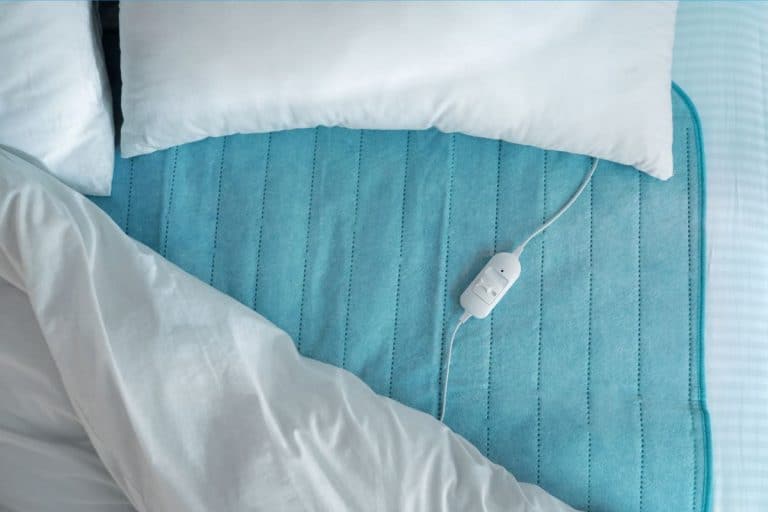For something that takes up over a third of our lives, we are surprisingly miserably bad at sleep. All this sleep practice does not seem to translate into better sleep, as almost 70% of Americans report feeling sleep deprived according to one study.
As per the same research by Simba Sleep, 11% of Americans also suffer from some form of sleep problem regularly. These statistics are a grave cause for concern, as there is no overstating the importance of getting quality sleep.
The consensus in the medical community is that sleep can improve brain function, digestive health, and significantly boost your immune system. Consistently getting great sleep also helps mitigate several disease markers and reduce your risk of developing many chronic illnesses.
Hence, for a healthy, happy life, it is paramount that you get your sleep right. However, with sleep, like with most other complex biological systems, it is often the small, easily overlooked elements that can make a world of difference.
While scented pillows, digital minimalism, meditation, and other new agey strategies can provide some respite for poor sleepers, for many people, a more conscious approach to nutrition can bring the most significant possible gains.
14 Best Foods To Eat Before Bed For Better Sleep
Honey
Honey is a wonder food that just about makes everything better, and it is excellent for sleep too. It is quite a trendy recommendation to take a teaspoon of honey during troubled sleep to help ease you back into REM, and it works, because honey is the closest thing to a natural food sedative.
Honey promotes sleep in two main ways. First, this sweet liquid brings enough natural sugars to restock the glycogen levels in your liver, preventing any hunger triggers and turning off orexin, the hormone that keeps us awake.
Secondly, honey helps to slightly elevate the blood’s insulin levels, which leads to the release of melatonin, the sleep regulatory hormone and enhances the flow of tryptophan into the brain.
Warning: For infants and very young children, do not use raw honey, as this type of honey can often contain bacterial spores that are harmless to adults but can cause botulism poisoning in smaller children.
Furthermore, people with pollen allergies should avoid honey as it often contains pollen grains. Honey can also cause an unhealthy spike in blood sugar levels for people with type 2 diabetes.
Related:L-Tryptophan Dosage For Sleep And Sleep-Related Disorders
Bananas
Bananas are some of the cheapest and healthiest energy-boosting foods. Hence, it is no surprise that this magnesium-rich fruit often features in breakfast recipes to provide you with that oomph you need to start the day on a high note.
However, while it is pretty standard to add a banana to your morning routine, we recommend that you consider adding a couple to your nighttime regime as well. Magnesium helps to relax the muscles and reduce agitation, helping bring you to a relaxed state that works as well for sleep as it does for body exertion.
Bananas also contain melatonin and serotonin, both neurotransmitters that help to boost and regulate your circadian rhythms and help ensure a good night’s sleep. Furthermore, bananas also contain another vital compound, tryptophan, an amino acid that enhances the body’s production of serotonin.
Note: People with latex sensitivity have an increased chance of having allergic reactions to a banana.
Almonds
Nuts are some of the healthiest foods you can add to your diet as they bring a healthy dose of many vital minerals and nutrients that help improve bodily functions. When it comes to boosting sleep, however, one of the best nuts you can choose is almonds.
Almonds are some of the best sources of magnesium, a vital mineral that helps to increase relaxation, reduce muscle tension, and set you in the mood for an excellent sleep.
Almonds are also a great source of melatonin, the primary sleep regulatory hormone.
Furthermore, almonds also pack many other vital nutrients like phosphorus, manganese, and riboflavin. Plus, with almonds, you also get a healthy dose of antioxidants, monounsaturated fat, and fiber.
Consequently, this wonder nut, in addition to improving overall health, can also help to reduce cortisol, a stress hormone that often impacts sleep negatively. Almonds also help to reduce inflammation within the body.
Are you contemplating options for a healthy bedtime snack? Consider an ounce of almonds for some great tasting crunchy fun that enhances your sleep.
Turkey
If you live in the U.S., the chances are that you have the grandmother’s tip that eating turkey is a great way to promote sleepiness before bed. And with spates of drowsiness that often follows Thanksgiving dinner, it is hard to fault that piece of folk advice.
However, turkey’s role as a soporific food does have some backing in science. Turkey is high in the amino acid tryptophan, which boosts the body’s production of sleep-regulating neurotransmitter melatonin, which helps induce drowsiness.
Furthermore, in addition to providing a healthy dose of body-building protein, turkey is also an excellent source of other vital minerals like riboflavin, selenium, and phosphorus. Hence, whether as a late-night snack or as part of any proper meal, turkey is an excellent addition to any diet plan.
Kiwi
Are you looking for a low-calorie yet nutritious nighttime snack? Kiwis fit the bill perfectly. Kiwi is a small tasty fruit that packs a lot of flavors and provides a host of health benefits.
When it comes to inducing slumber, kiwi’s potency comes from its high serotonin content, which helps to regulate your circadian rhythms and improve sleep quality. Kiwi also helps reduce inflammation and improve digestion, two factors that directly impact your sleep.
Furthermore, adding kiwis to your diet can also bring loads of other benefits thanks to its high supply of antioxidants, including carotenoids and vitamin C. Kiwis also contain vital nutrients like potassium, folate, and other crucial trace minerals.
Plus, kiwis are extremely low-calorie food, so you can add a couple to your nighttime routine without messing up your diet plan.
Fish
One excellent addition to any food plan is oily fish like tuna, salmon, and mackerel. These types of fish are one of the best sources of vitamin D as well as omega-3 fatty acids.
With fish, their vitamin D content is the core reason why they are so good at promoting good sleep. Vitamin D is a primary stimulant of serotonin production in the body, and more serotonin translates to deeper sleep and increased ease of falling asleep.
The omega-3s in fatty fish also help to reduce inflammation and bolster the body’s natural defense against heart disease, while boosting brain function.
Walnuts
Another popular type of tree nut that makes for a healthy sleep-inducing snack is walnuts. Walnuts provide one of the best ratios of melatonin per ounce of any food types. Since melatonin is one of the core regulators of sleep and circadian rhythms in the body, it follows that walnuts are an excellent choice for late-night snacking.
In addition to being great for sleep, walnuts are also one of the more nutritious nuts, packing nutrients like omega-3 fatty acid, linoleic acid, and over 19 minerals and vitamins.
Also, since a single ounce of walnuts provides 4 grams of protein, the nut makes for a healthy mix of fat and protein that is great for staving appetite and reducing the chance of late-night binging.
Some studies also point to walnuts as excellent food for reducing cholesterol levels and boosting heart function.
Warning: Walnut can cause bloating or other mild allergic reactions in people with walnut or general nut sensitivity.
Chamomile Tea
It is a common practice among many older people to take cups of tea around bedtime, and they must be on to something because certain teas are excellent for helping you wind down. One such drink is chamomile tea, which can help relax your muscles and create a mild, soothing effect.
Chamomile tea works for sleep because it contains apigenin, an antioxidant that helps reduce insomnia, depression, and anxiety and helps to induce sleepiness.
Chamomile tea also helps to reduce inflammation, which can further enhance your ability to fall asleep quickly.
Considering adding chamomile tea to your bedtime routine? A cup of this refreshing tea an hour before sleeping can make all the difference you need.
Read More: 5 Best Teas That Will Lull You Into Sleep
Passionflower Tea
Another excellent addition to any nighttime routine is passionflower tea. This tea’s high concentration of flavonoid antioxidants helps to boost immune health, reduce heart disease markers, and reduce inflammation.
Passionflower tea’s sleep-inducing powers come in part from its apigenin content. Apigenin is a relaxing antioxidant that binds to specific brain receptors, stimulating them and evoking a calming effect across the entire body.
Chickpeas
Are you looking for a crunchy late-night snack that won’t disrupt your sleep or your diet plan? One of the best options out there is chickpeas. Chickpeas are low on calories; they digest quickly and fast and stimulate melatonin production, which helps you relax and regulates your sleep.
Also, chickpeas include a heavy dose of vitamin B6, which aids the conversion of tryptophan into serotonin and helps smoothen your sleep cycles.
Plus, these nuts are delicious. With chickpeas, you get a tasty lightweight replacement for unhealthy snacks while getting some essential sleep boosts. Don’t fancy all that crunchiness at night time? You can opt instead for hummus, which is mainly chickpeas with hints of lemon juice, olive oil, and tahini.
Salads
There is never a wrong time to have salads, and nighttime is a go as well. Salads are some of the healthiest food choices, packing a lot of fresh nutrient-rich foods, containing a decent selection of vitamins and minerals while posting a significantly lower calorie count than most other options.
Lettuce is one of the best parts of salad for your sleep as it contains lactucarium, an antioxidant that relaxes your muscles and creates a mild sedative effect.
Hence, a lettuce-heavy salad, complete with addons like berries, honey, and cottage cheese for an excellent taste, is up there as some of the healthiest and relaxing bedtime snacks.
Note: For nighttime salads, skip the oil dressings. Oil-heavy creams pack excessive amounts of fat that can cause slow digestion, troubled sleep, and mess with your weight goals. It would help if you also considered keeping other fat-heavy ingredients at a minimum.
Milk
For many Americans who grew up on years of a nighttime routine that included a glass of warm milk before bed, the nostalgia alone is enough to induce a sedative effect.
However, there is some science as to why milk evokes cozy feelings—milk pack copious amounts of melatonin and tryptophan. These two neurotransmitters are at the forefront of getting you to sleep and keeping your sleep cycles stable.
A glass of warm milk may be all you need to create an intense soothing session before hitting the haystack.
Oranges or Grapefruits
An absence of vitamin C in your diet can create several health issues that range from dire ailments like scurvy to sleep disruptions and even sleep deprivation. Vitamin C deficiencies are a common cause for constant waking up during the night.
To meet the recommended daily intake of 65-90 milligrams of vitamin C, you should consider adding oranges or grapefruits to your diet, and these delicious, juicy fruits also make a bomb late-night snack.
Vitamin C is also an excellent way for people with restless leg syndrome to get some relief and go to sleep quicker.
Peanut Butter
The devil always knocks at night with that incessant sweet tooth that has ruined many a diet plan. Next time you catch that craving for something sweet, instead of reaching for something unhealthy, consider opting instead for some good old plain peanut butter.
Peanut butter packs a decent dose of tryptophan, which boosts metabolism and promotes the release of sleep-inducing neurotransmitters like serotonin and melatonin.
With a small scoop of peanut butter to ease your cravings, you will be dozing off to wonderland in no time.
Read More: 12 Natural Sleep Remedies that Really Do the Trick
8 Foods to Avoid Before Bed for Better Sleep
Knowing the best foods to eat before bed is only half the battle, as you must be wary of the many potential sleep stealers that often feature in our diets. Some foods you should entirely avoid before bed to increase your chances of a restful sleep include:
Coffee
Coffee is one of the most obvious choices for meals you should avoid before bed, as it is the antithesis of sleep in food form. The caffeine in coffee is a high-level stimulant with effects that can reach up to 10 hours after you’ve had the drink. Hence, coffee is an absolute no-no anywhere near your bedtime, and even decaf is not safe as it often contains trace amounts of caffeine.
Also Read:
- Why Does Coffee Make Me Sleepy? And The Solution That Works
- How To Fall Asleep After Drinking Coffee
Alcohol
Alcohol is a tricky one because while a nightcap can help increase drowsiness, larger intakes can prevent REM sleep, leaving you feeling groggy throughout the following day. Hence, it is best to restrict your alcohol intake to the minimum for better sleep.
More: How Does Alcohol Affect Sleep?
Spicy Foods
Excessively spicy foods are some of the worst choices you can make around your bedtime. Spicy foods can significantly increase your chances of suffering from heartburn or indigestion, which, in turn, can lead to sleep disruptions and poor sleep. Spicy foods can also result in an elevated body temperature, which does no good for your sleep efforts too.
Cheese
Cheese packs loads of the amino acid tyramine, a neurotransmitter which places the brain on high alert, the exact opposite of what you want around your sleep time. Hence, it is best to completely cut cheese out of any late-night snacks to avoid fueling some intense dreaming that can disrupt your night’s rest.
Dark Chocolate
Although it may not be widespread knowledge, dark chocolate packs a decent amount of caffeine. Hence, you don’t want to be eating dark chocolate around bedtime as you would be setting yourself up for a night of insomnia.
Also Read: Does Dark Chocolate Help You Sleep?
Ice Cream
While they often feature as comfort food for night time, ice cream ranks up there as one of the worst bedtime foods for your sleep. This sweet food contains a ton of sugar that spikes your energy level, not something that is compatible with restful sleep. Ice cream also supplies your body with a massive load of fat, which is harder to digest than other food types.
Also Read: Should You Eat Ice Cream Before Bed?
Fatty Foods
High-fat foods are harder to digest, and this extra toll on your body can lead to sleep disruptions that can keep you up during the night. Hence, make sure to avoid such meals immediately before bed.
Fried Food
Fried foods like fries are some of the most tasking foods you can put your system through and are a surefire way to reduce your quality of sleep while you suffer from slow digestion or indigestion. Steer clear of fast food for the best possible nighttime experience.
Sleep and Nutrition
Your quality of sleep at night depends on a lot more factors than when you sleep and at what time your alarm clock rings. Everything from how much daily sunshine we get, how much time you spend on your devices and how much exercise you are getting all contribute some quota in influencing how smoothly you sleep.
One major contributor that can significantly tip the scales in either direction is our diet. The meals you take in can dramatically affect your sleep schedule in two main ways:
What You Eat
The types of foods you eat have a direct impact on the quality of sleep you get at night. In many cases, this relationship is immediately apparent, like with the disruptive effects of a nighttime long black or a maxed-out greasy cheeseburger with fries.
However, the connection between what you eat and how well you sleep extends to a more subtle link with your general diet choices.
Since the brain is the largest consumer of energy in the body, eating an adequate, clean, and nutrient-rich diet provides the brain with all the conditions it needs to function optimally and stay healthy.
Consequently, an adequately fueled brain has the proper priming needed to create a balanced environment for the adequate production and proper function of crucial neurotransmitters like melatonin and serotonin that regulate sleep and promote more profound, more restful sleep cycles.
In one study in the Journal of Clinical Sleep Medicine, researchers found a sufficient correlation between the diets of subjects and their quality of sleep. Data from the research showed a link between foods high in saturated fat and sugar and weak, less restorative sleep over five nights.
When You Eat It
When it comes to sleep, knowing when to eat is equally as important as what you eat.
Sleep, as well as a host of other bodily functions, follows the body’s circadian rhythms—natural, internal processes that repeat every 24 hours, and regulates the body’s sleep-wake cycle. Consequently, the circadian rhythms ensure that all the body systems trigger at the right time, and this is especially crucial when it comes to sleep.
Without a doubt, equipping the body with clean, nutrient-rich fuel is an excellent way to optimize your body clocks for maximum efficiency. However, irrespective of how great your diet is, drastically altering your eating patterns can create shifts in the alignments of our body clocks.
Furthermore, a radical diet change, like switching to a high-carb or high-fat meal plan, can have far-reaching effects on our ability to sleep smoothly. This effect is especially true of late-night meals, which can affect levels of crucial hormones and neurotransmitters just before we hit the sack.
Hence, a good rule of thumb for night time snacking is to stick to lightweight, healthy foods that do not place excessive loads on the body’s systems. Plus, with the right food, you can even enhance your ability to get more restful sleep.
Getting better sleep today could be as simple as eating the right meal before dropping off for the night. To significantly improve your chance of getting more restful nights, here are 14 foods you should consider adding to your grocery list.





